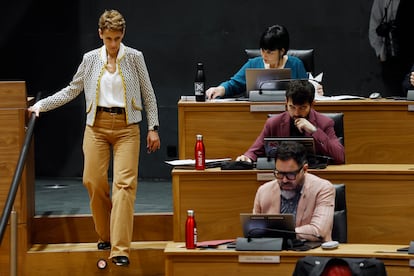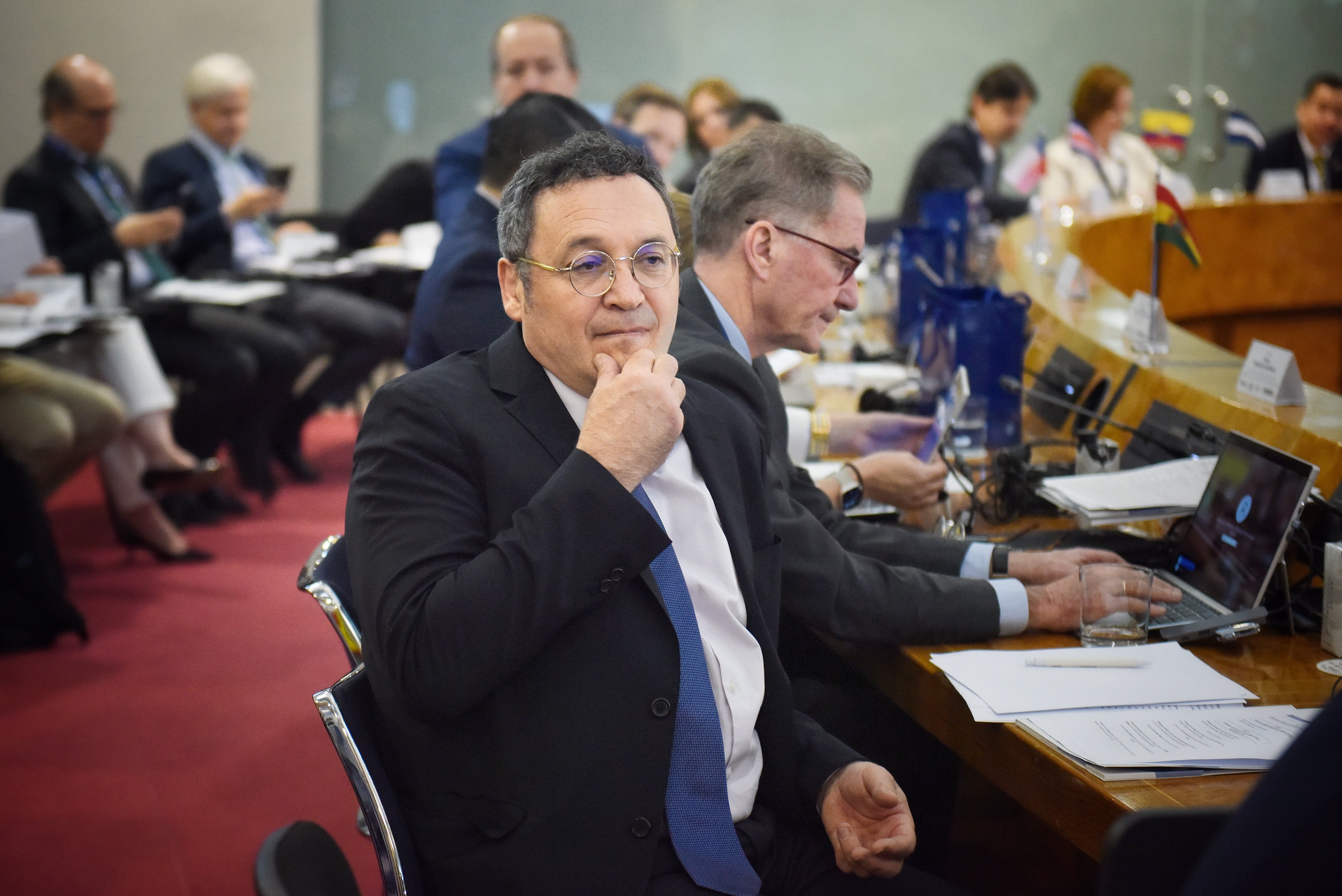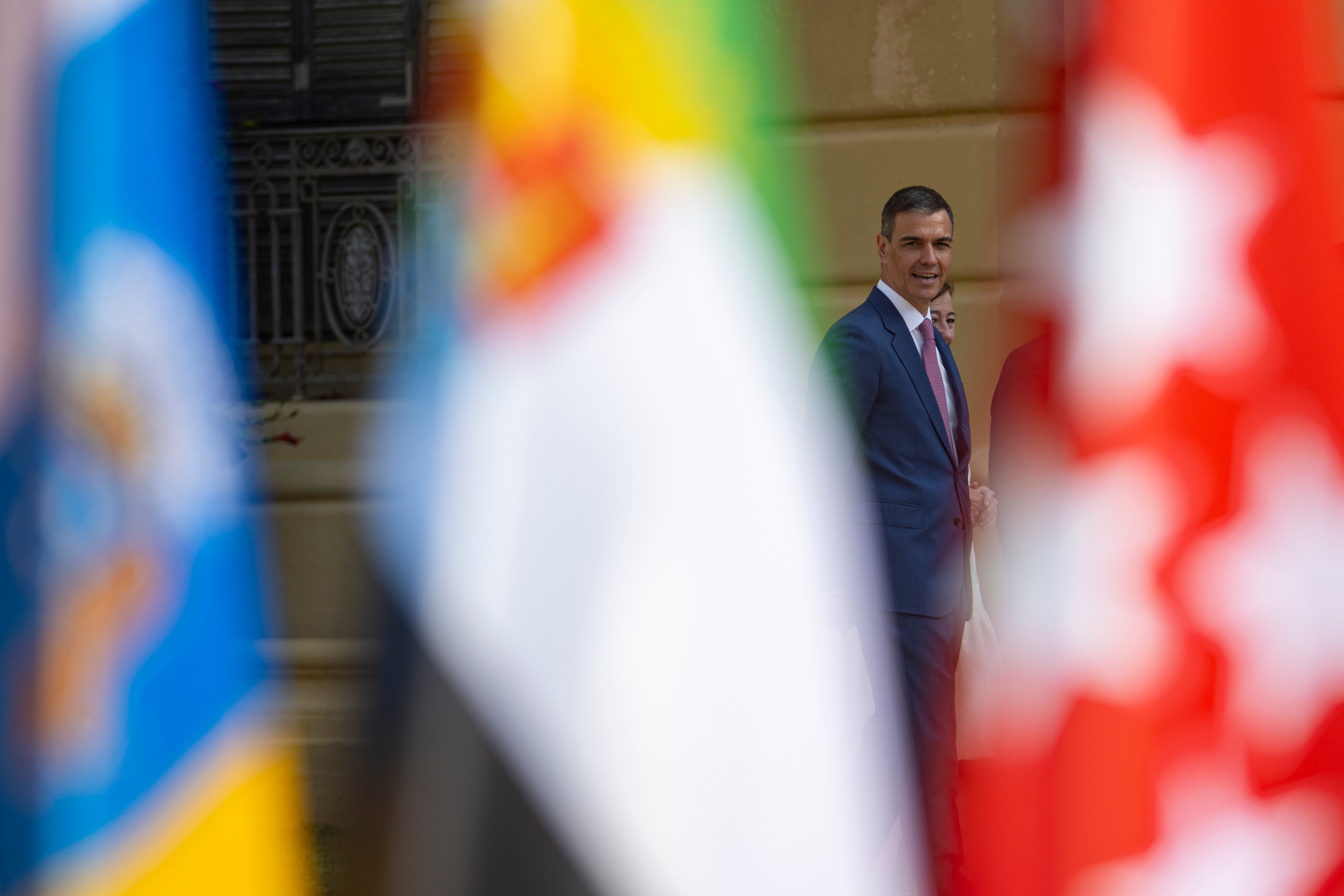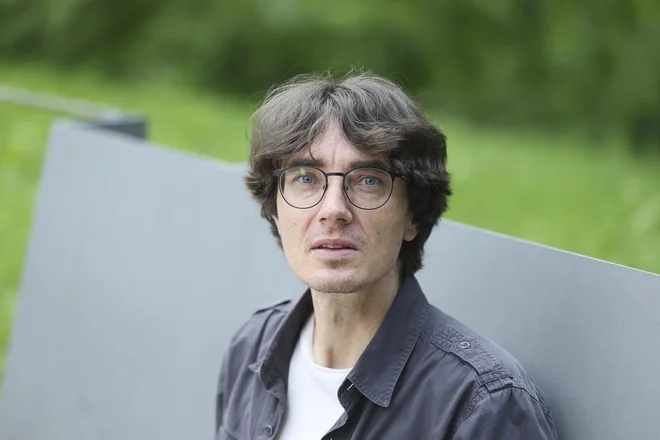Navarra recovers the traffic and road safety competition | Spain

In the sixties, the Franco government removed the exclusive competence in road control, which we currently know as traffic and road safety competence. Since then, those powers were the Civil Guard and exercised them jointly with the Foral Police. The successive Navarre governments wanted to recover it exclusively and this Tuesday, After several political and judicial pitfallsthe Official State Gazette (BOE) and the Official Gazette of Navarra (BON) have published the Royal Decree that determines the transfer to the Foral Community of the functions in traffic and circulation of motor vehicles.
Navarra is already the third community, after Catalonia and Euskadi, to exclusively assume the worship and road control work, as well as the management of the fines. « Almost 100 years ago the body of the Traffic Foral Police was approved and subsequently it was the Franco dictatorship that suppressed a part of these powers. Today we do is recover that competition in exclusive matters and continue developing our self -government to seek a comprehensive foral police in all services, » said the first vice president of the Foral Executive and Minister of the Presidency, Felix Taberna.
The process to achieve this has not been simple. Already in 2000, The government of José María Aznar (PP) promised with the Miguel Sanz executive (from the Navarra UPN Training) to advance this issue, but it was not until 2018 – with Pedro Sánchez and Uxue Barkos (Geroa Bai) as respective presidents – when the first effective steps were taken to develop this agreement.
In March 2023, already with the socialist María Chivite in the presidency of the Foral Community, the pact was sealed and the Royal Decree of Transfer was approved. However, shortly after, the Justice Guard Civil Association (Jucil) appealed before the Supreme Court. In February of last year, the High Court annulled the norm when considering that there was a form of form: it could not be done by a royal decree, Well, not even the Organic Law of Reintegration and Amejoration of the Foral Regime of Navarra (Lorafna, the equivalent to the statutes of autonomy of other communities) or historical law recognize traffic competences for the community. The resolution did admit the possibility that Navarra would assume this function, « but, either reforming the Lorafna, or, through an organic law. » The first option was chosen and in April 2024 the necessary changes were agreed (in articles 49 and 51). Since then, the text has successfully overcome the different parliamentary procedures until it is published on Tuesday in the official bulletins of Spain and Navarra.
According to the agreement reached by the Mixed Commission of the Board of Transfersthe deployment of the Regional Police agents for the surveillance and control of traffic will be produced “progressively” within a maximum period of three years. Then, the Foral Police will exclusively assume the roads of road surveillance and control. During this period, the Civil Guard will continue to exercise these functions « in the intercity and crossings when there is no local police. » On the other hand, the State Administration will continue to process, solve and collect the sanctions from this Tuesday, an effective date of the transfer, until June 30, 2026, regardless of the police force that makes the complaint.
As of July 1, 2026, this function will correspond to the Government of Navarra.
Despite the statements of some political formations on the right, the exclusive assumption of traffic powers by the Foral Police will not mean the departure of the Civil Guard of Navarra. Around 1,580 agents are currently working in the community, of which only 150 are in the traffic service. With this transfer, three possibilities are opened: ask for a new destination within the traffic group, request their relocation in other body services in Navarra or join the Foral Police as regional officials, through a “catwalk” that will be activated soon.








